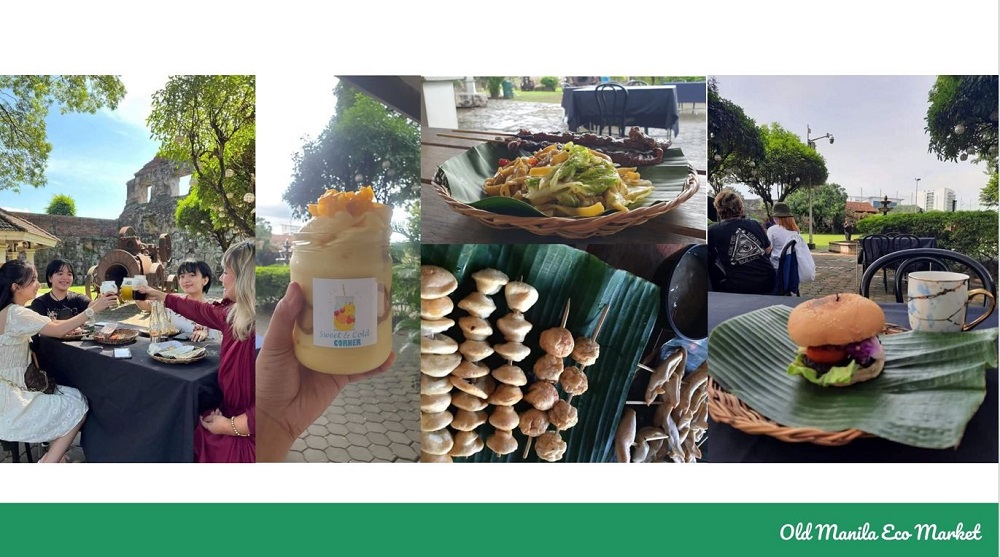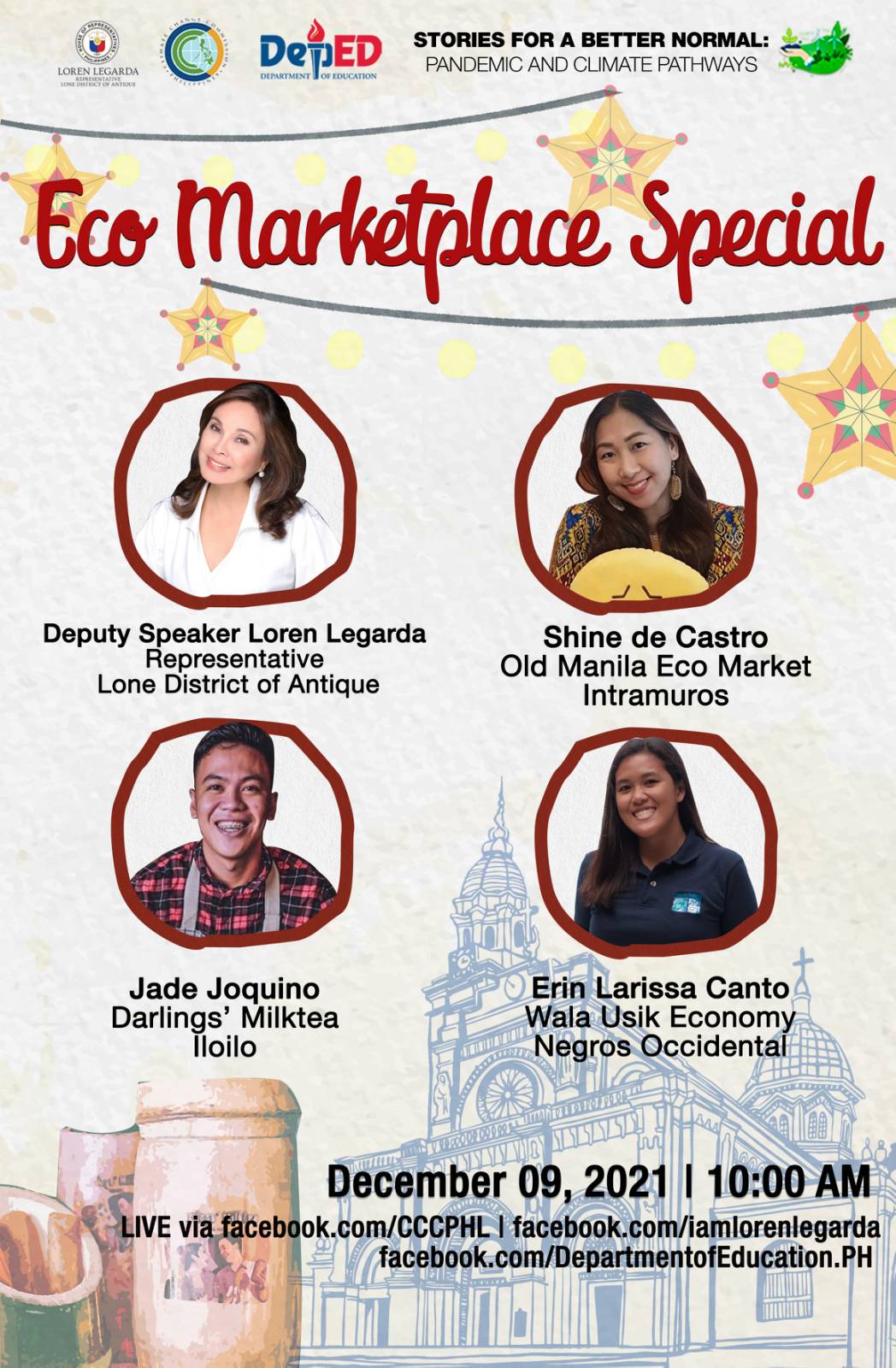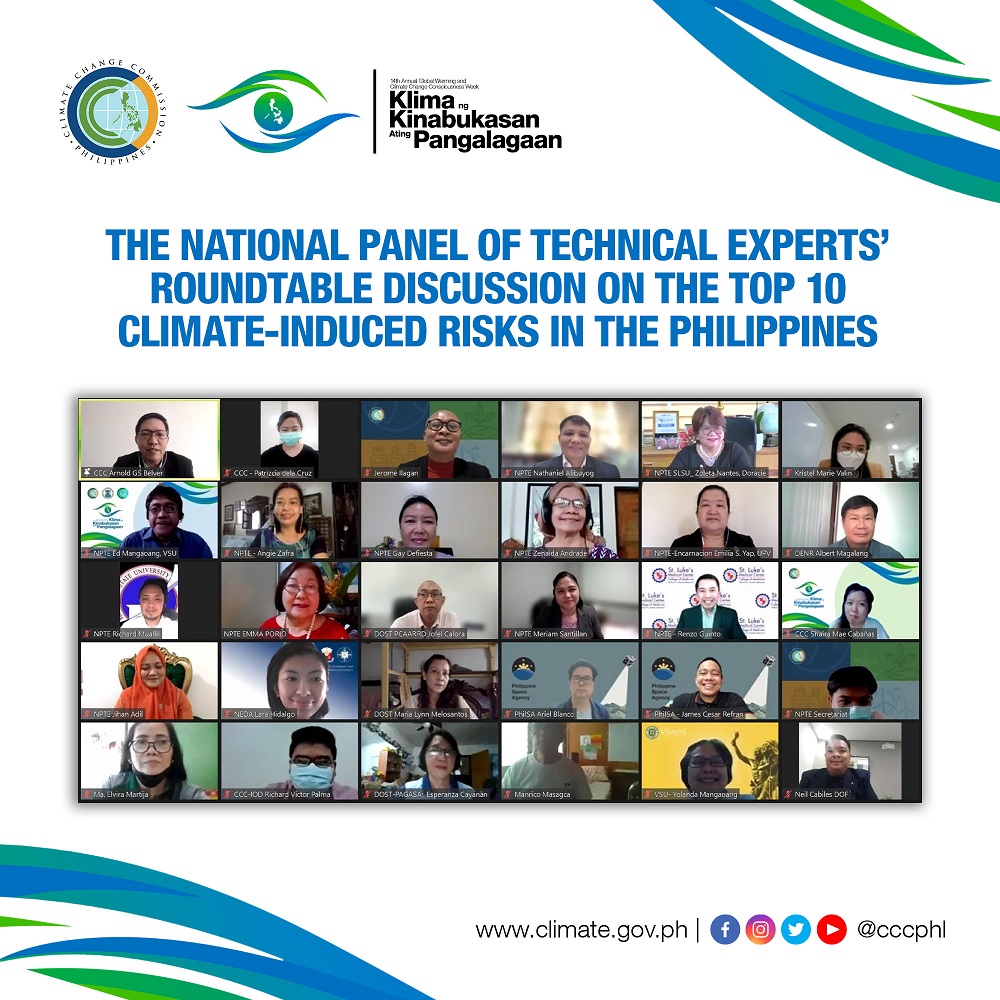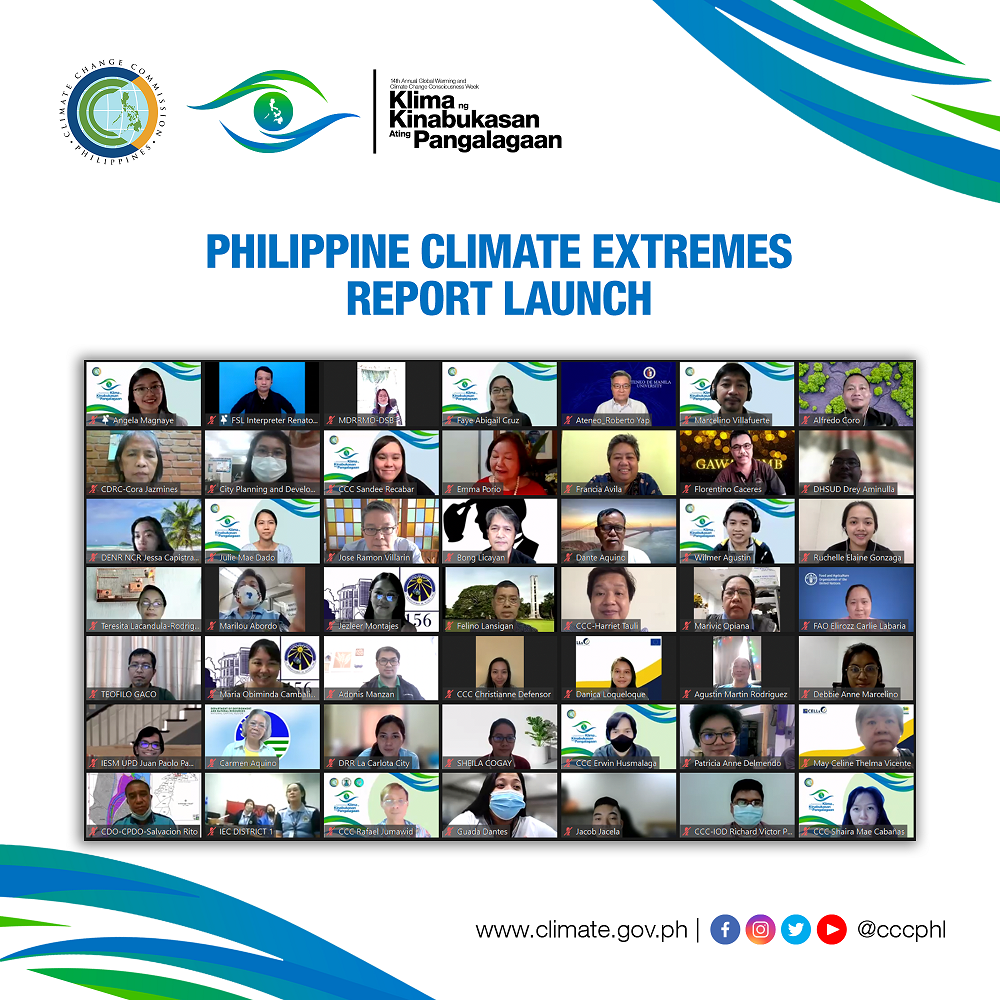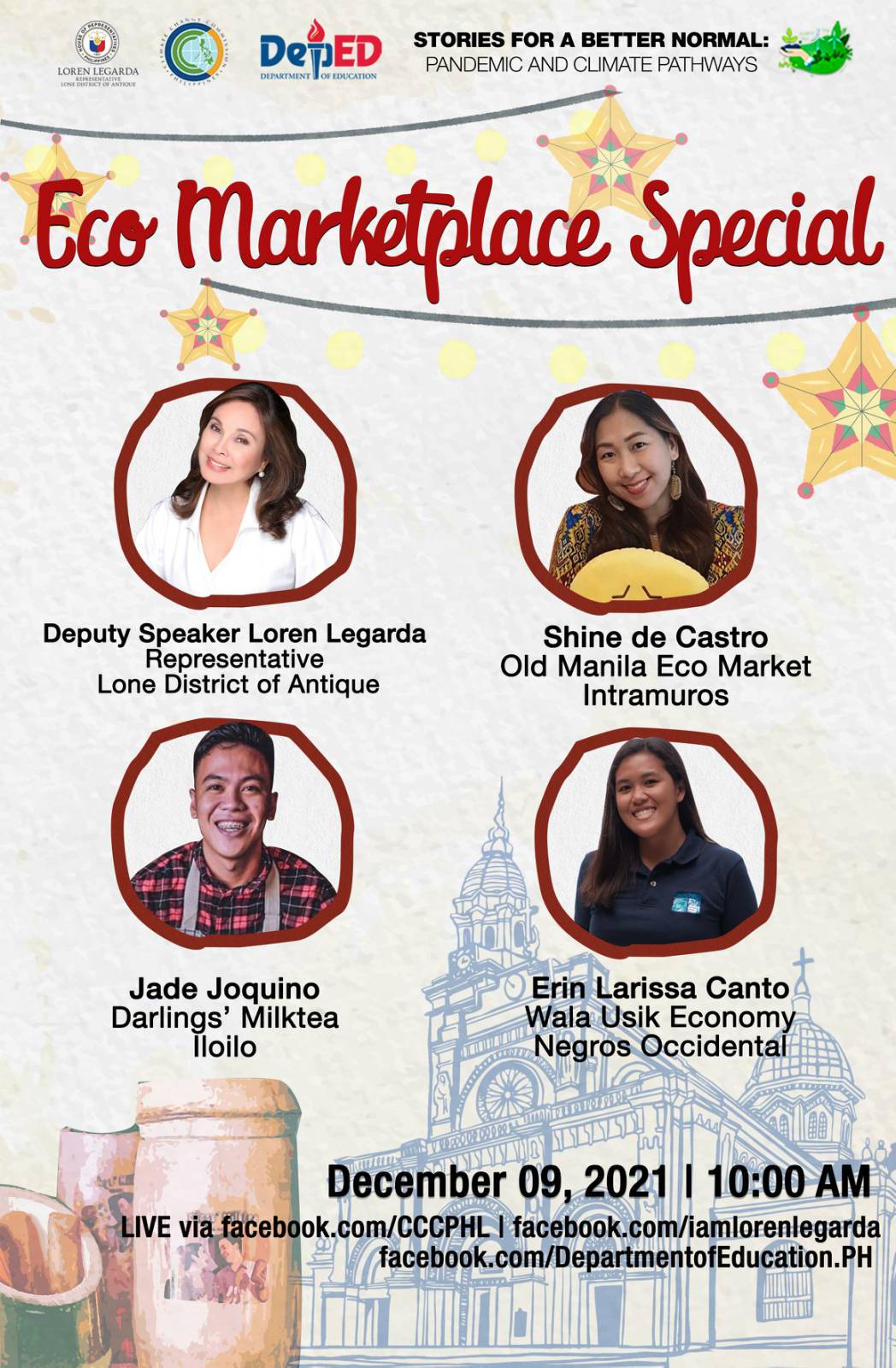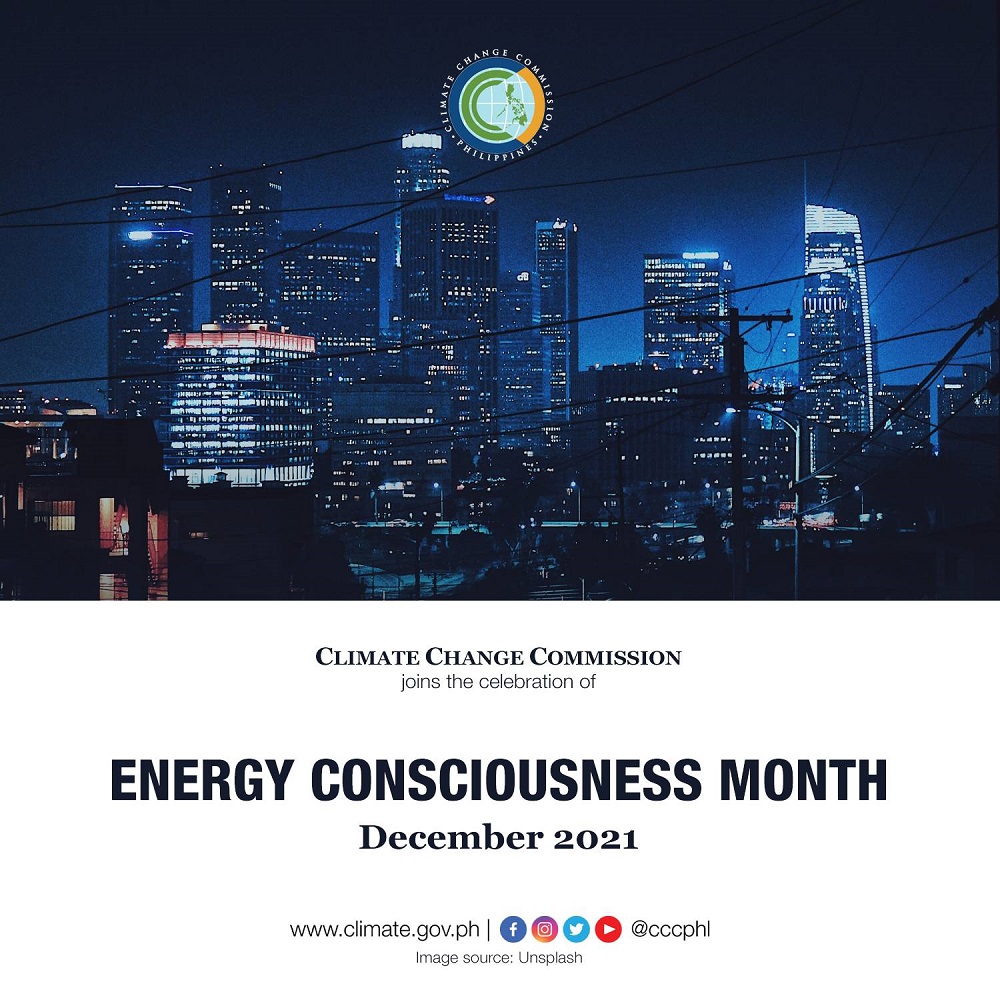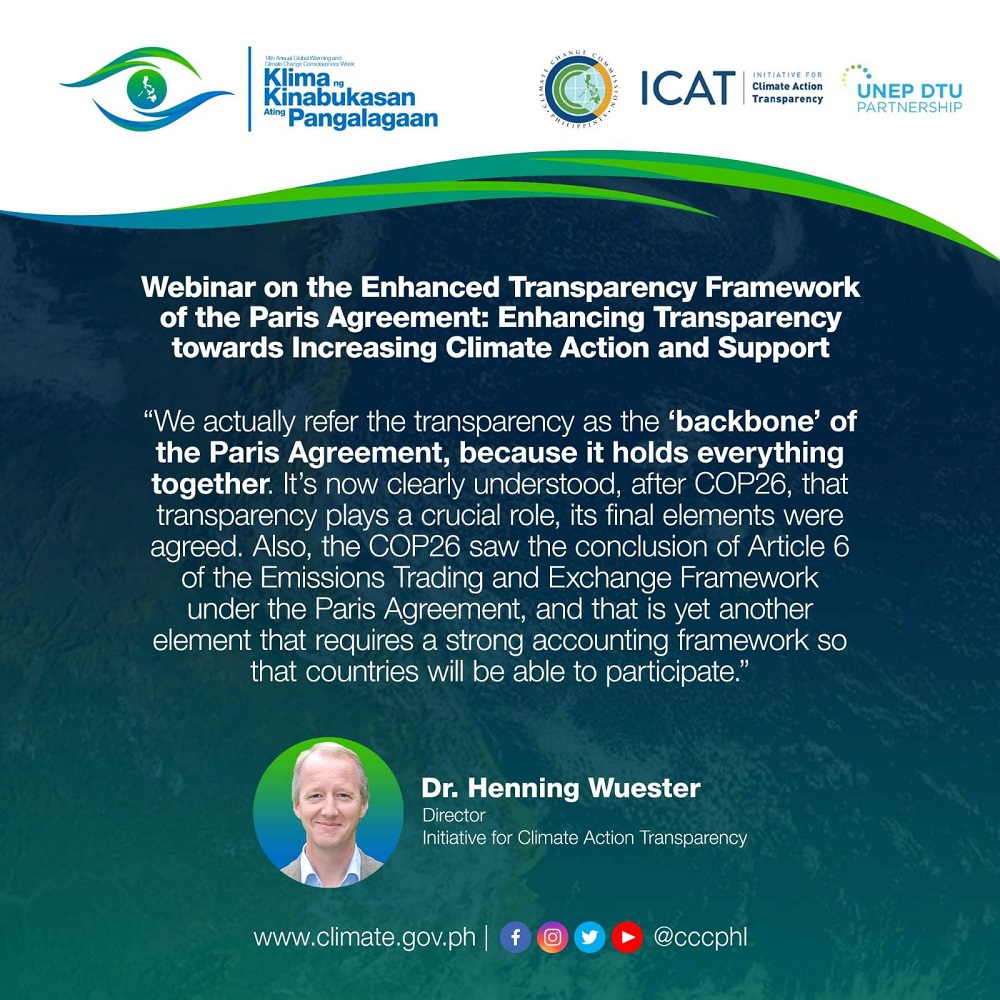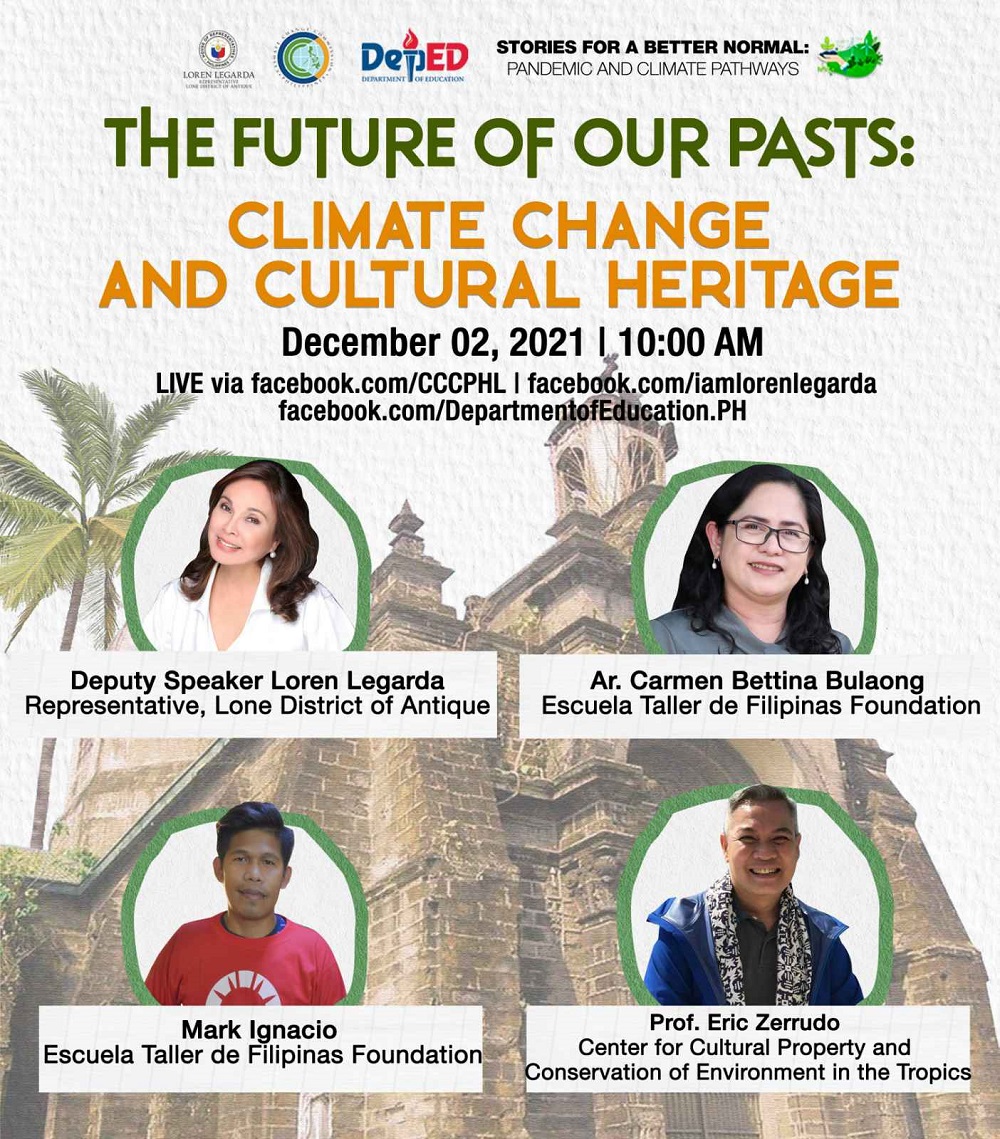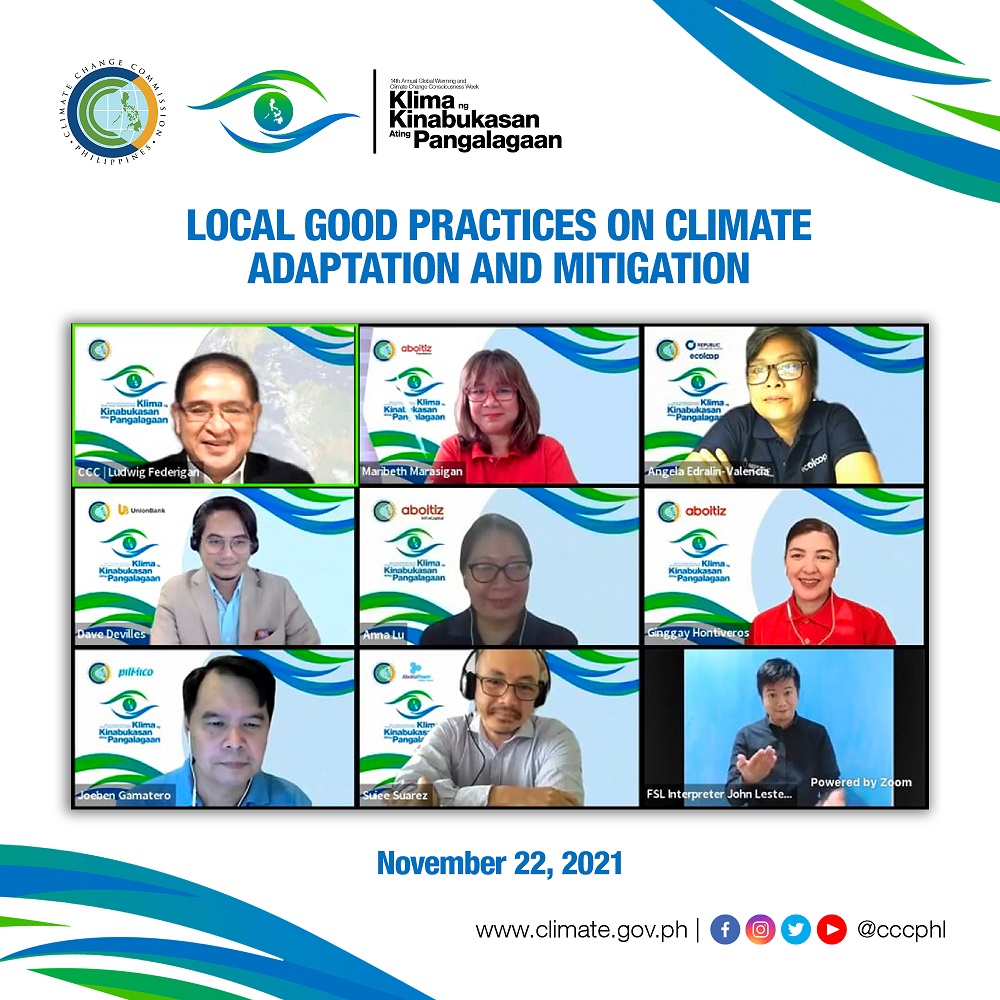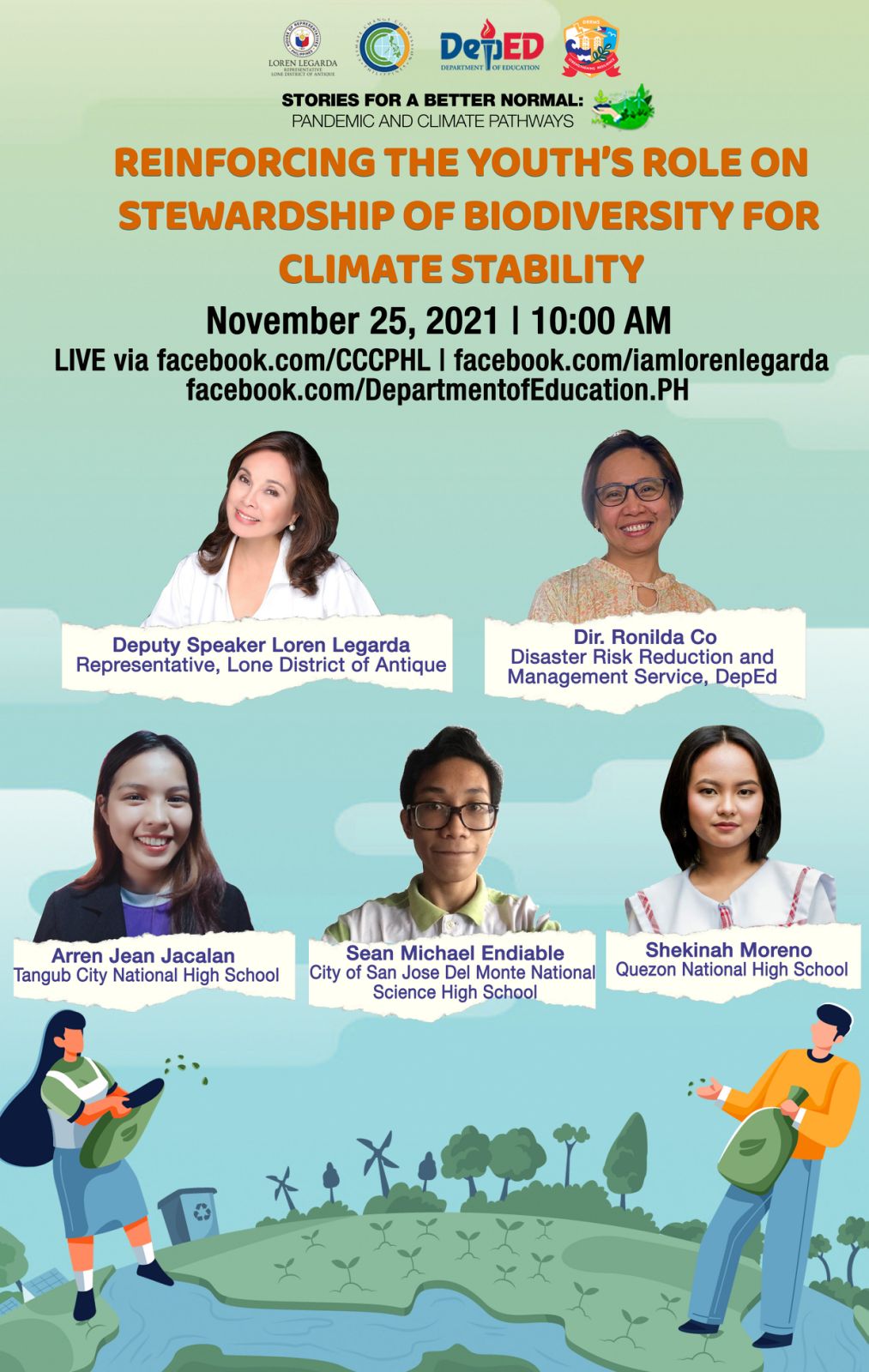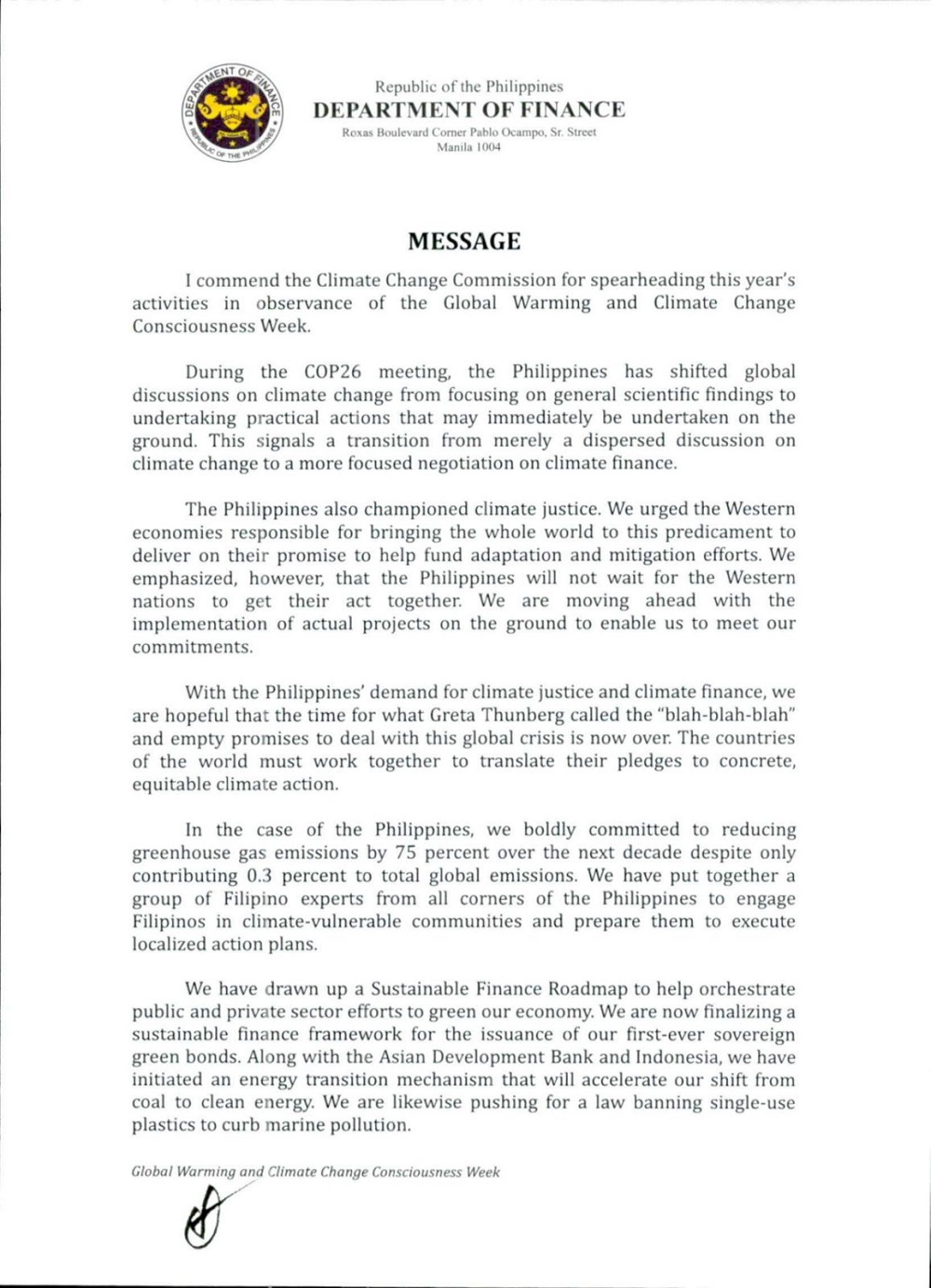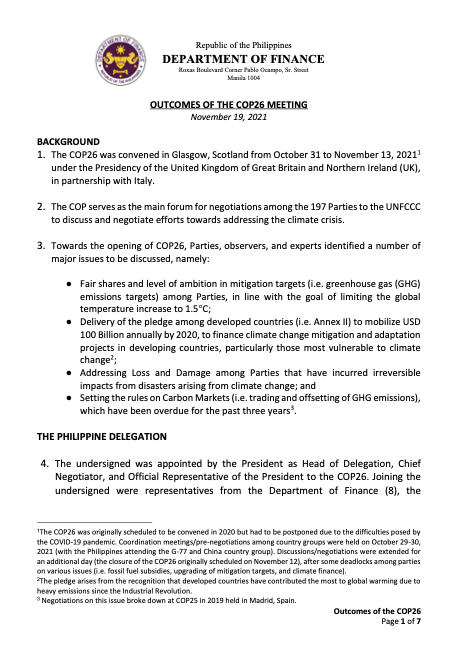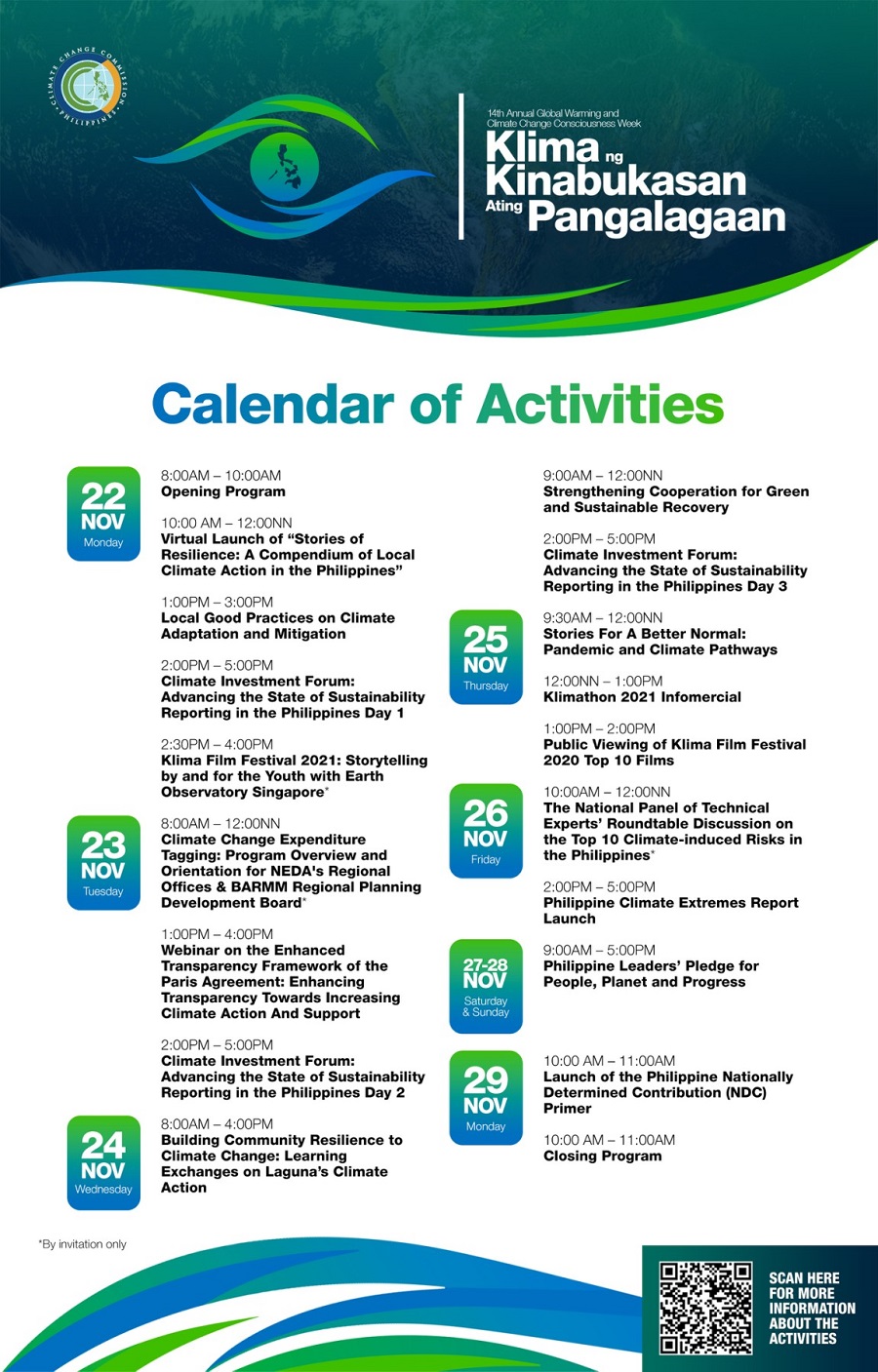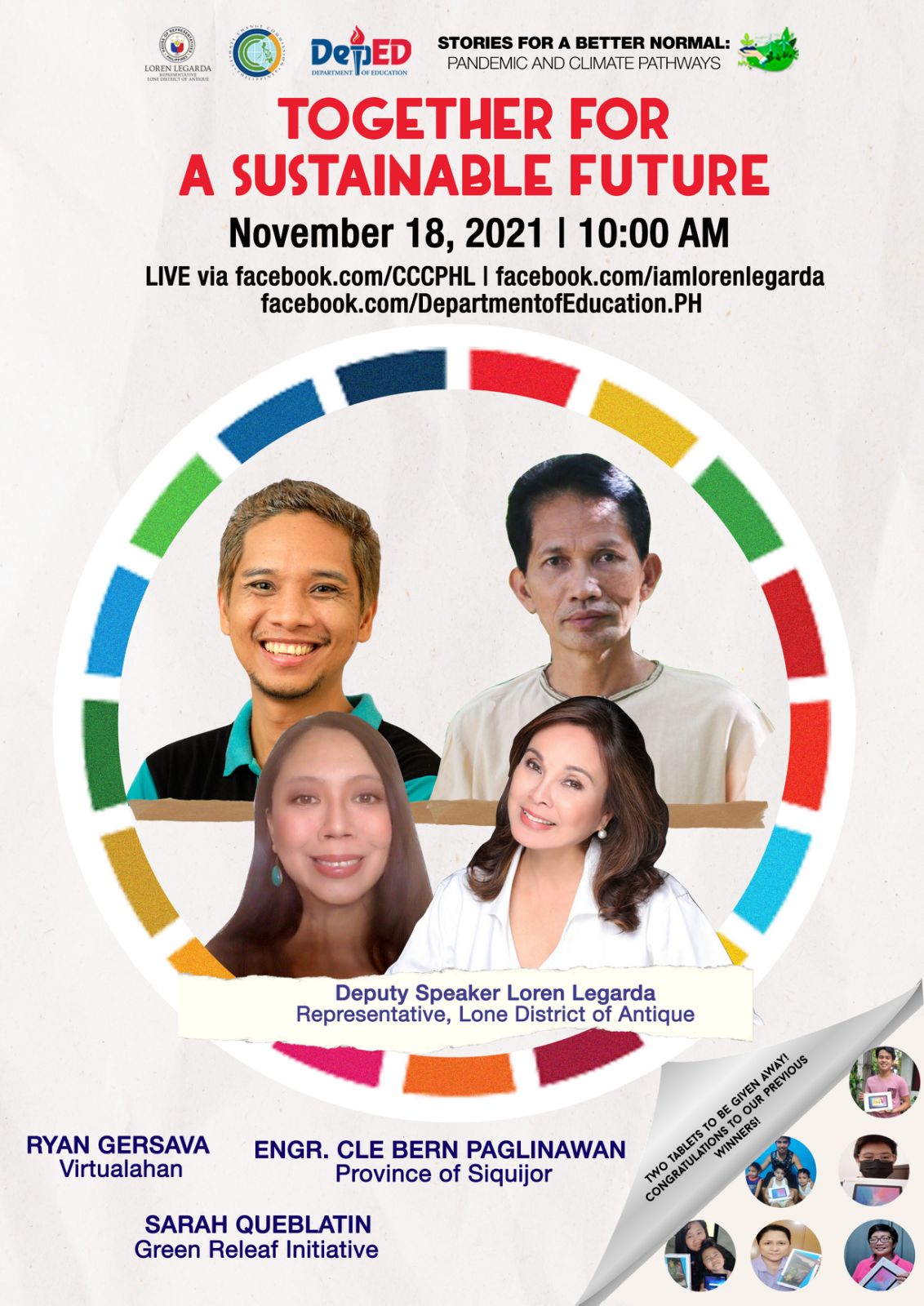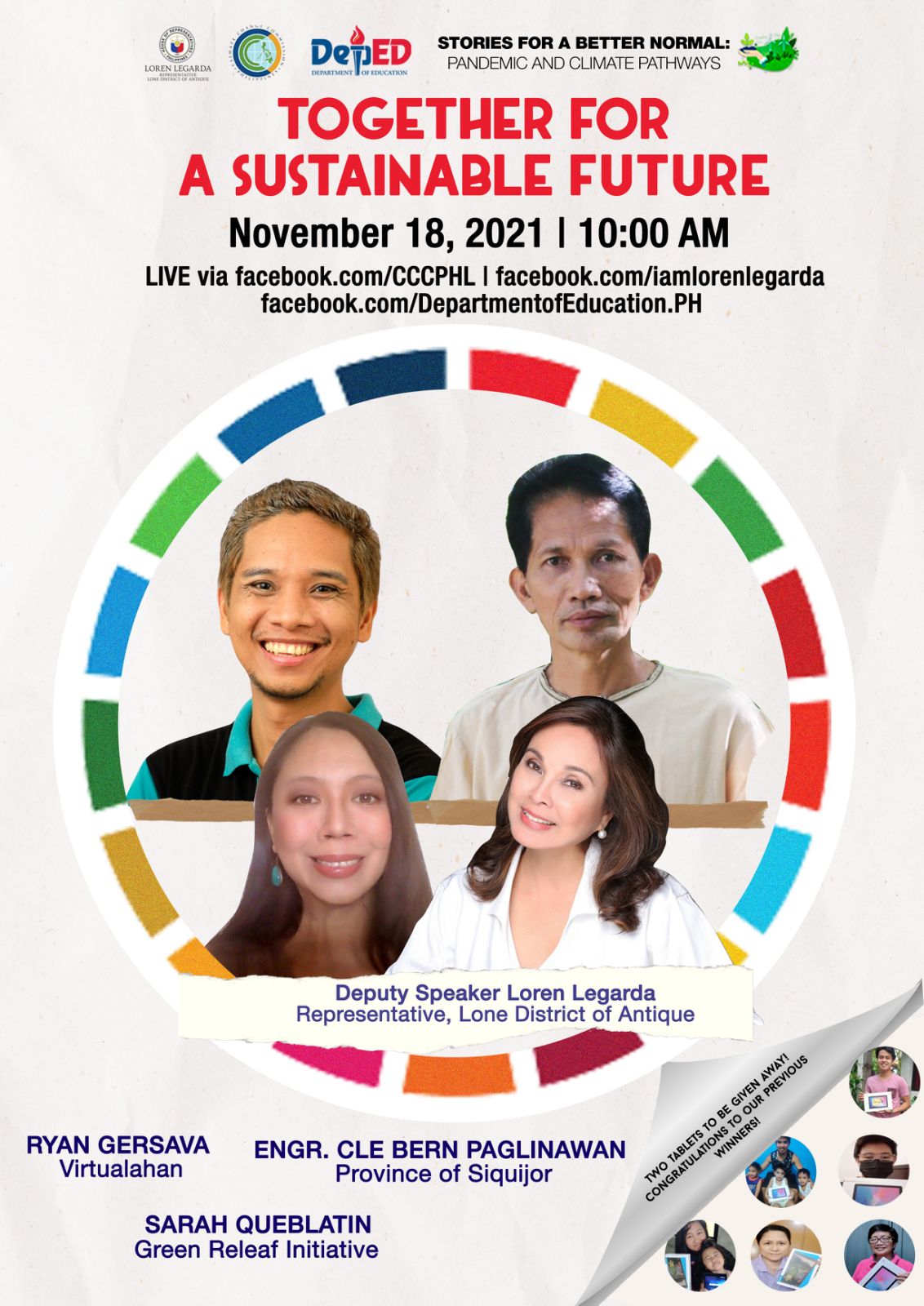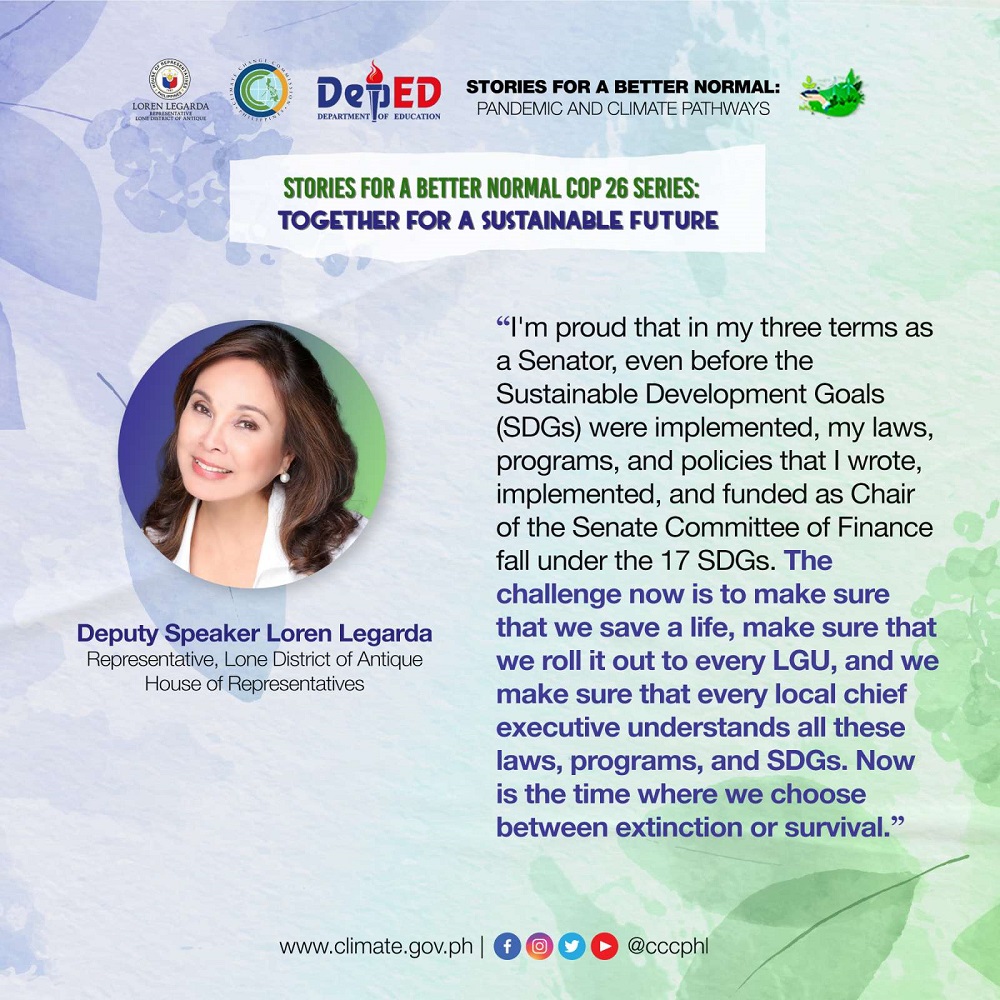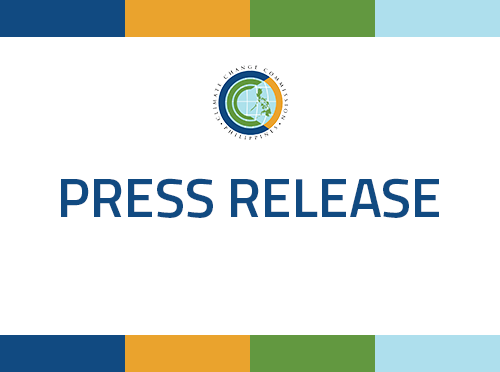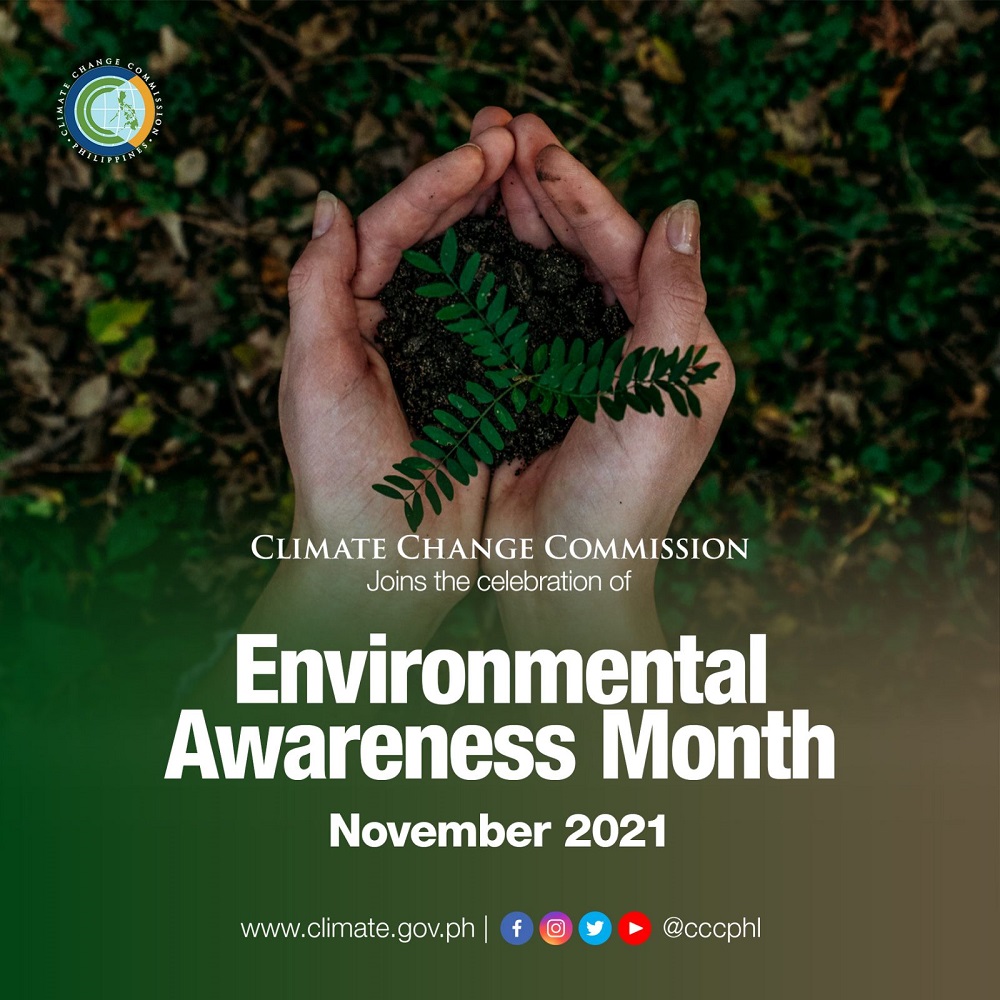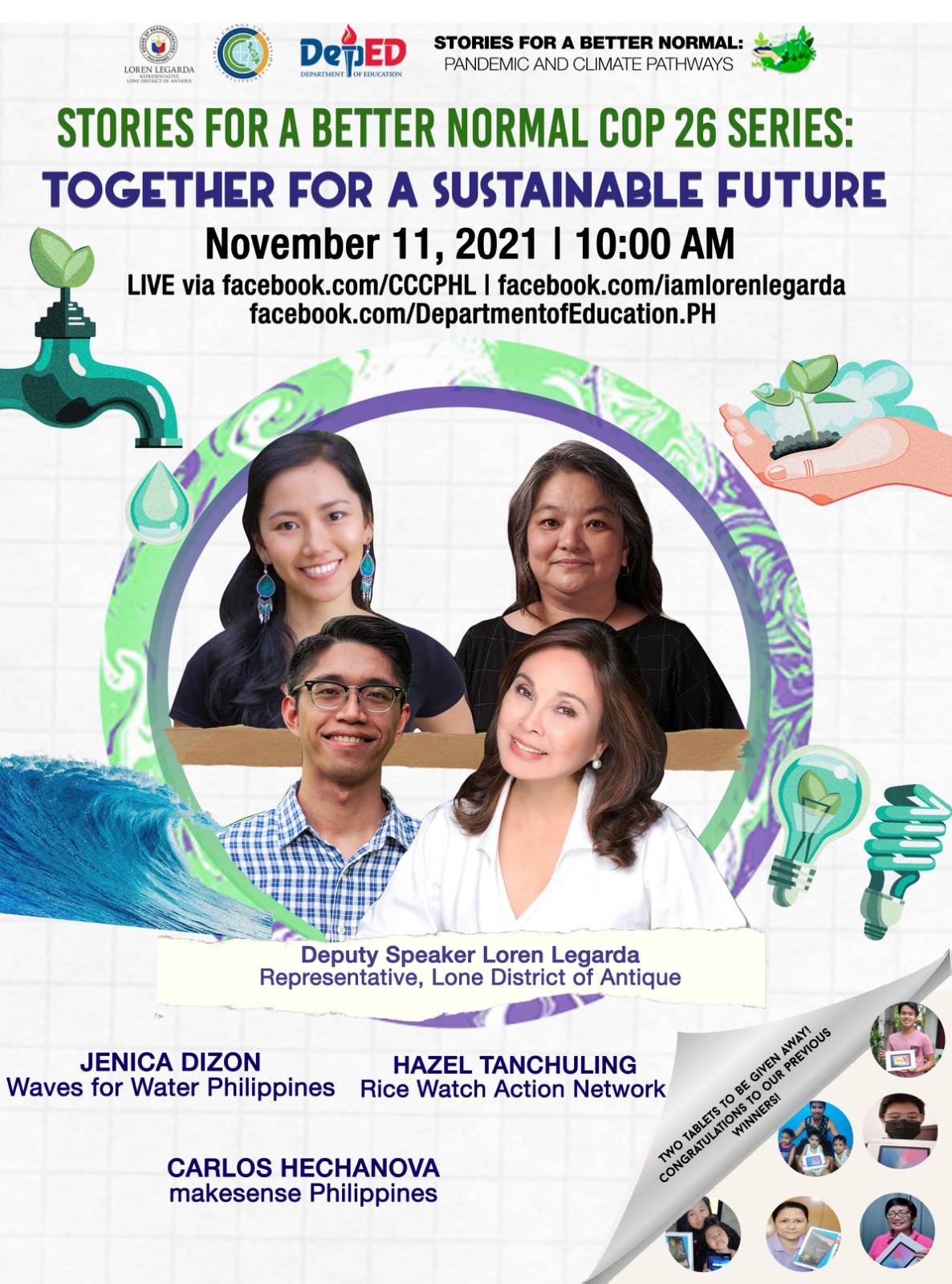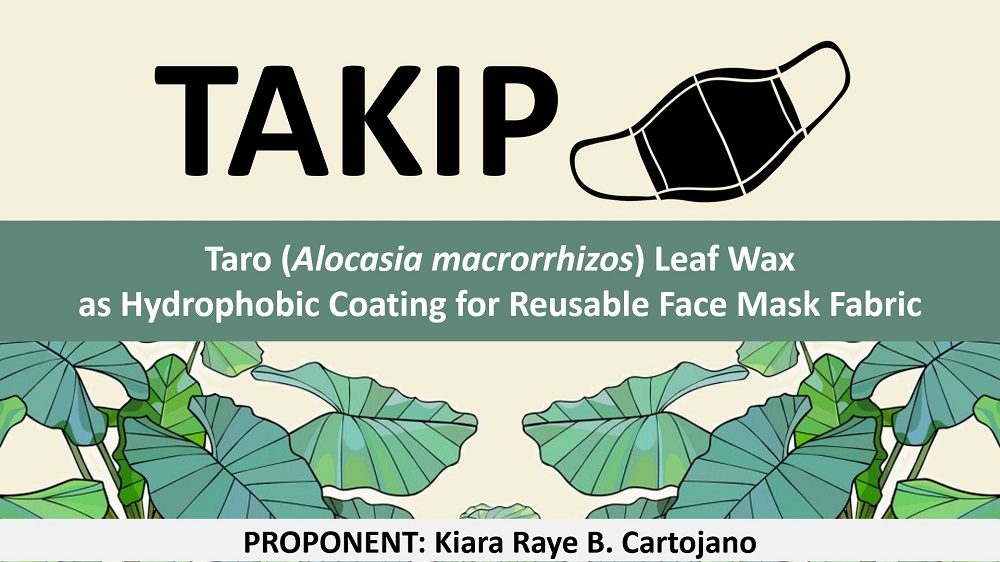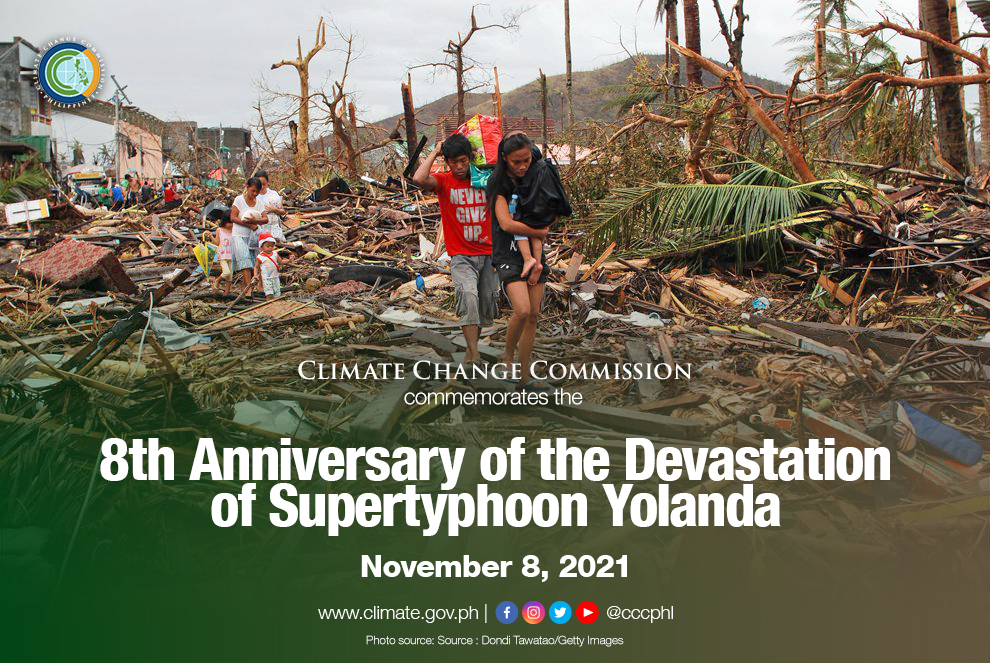MANILA, 7 December 2021 — The Climate Change Commission’s National Panel of Technical Experts (NPTE) laid out climate science, innovative technologies, and strategies for multi-sectoral cooperation for national and local governments to minimize loss and damage from climate-induced risks and achieve long-term resilience.
In a roundtable discussion held during the annual observance of the 14th Global Warming and Climate Change Consciousness Week, the NPTE identified top 10 climate-induced risks such as (1) sea level rise, (2) coastal erosion, (3) flooding, (4) increase in frequency and severity of tropical cyclones, (5) extreme drought, (6) temperature increase/rising urban heat index, (7) extreme rainfall, (8) climate influenced diseases, (9) wind patterns, and (10) biodiversity loss.
“We need to push for collaboration between local government units and higher education institutions to generate regional databases on climate change concerns and issues, integrate climate change adaptation programs in university extension and research, reorganize disaster risk reduction management councils and increase community groups' scientific knowledge on disaster risk reduction and climate change adaptation to inform the people and facilitate their access to the People's Survival Fund,” said Dr. Doracie B. Zoleta-Nantes, chair of the NPTE.
“Looking at the commonalities in terms of challenges in the cities of Cagayan de Oro, Ormoc, Angeles, Legazpi, and Tagum, we will notice that some challenges, which include sea-level rise and coastal inundation, saltwater intrusion, waste management, higher rainfall intensity leading to higher flooding and rain-induced landslide, water supply and demand, drought, poor city zoning, and urban heat island effect, are happening and quite common in the five cities,” said Dr. Patricia Ann J. Sanchez.
“The recent experiences in flood hazard mapping made clear that our local government units are really in need of technical capacity-building activities, for them to maximize the use of latest technologies, and to help them enhance their resilience and reduce their vulnerability to climate impacts like flooding. Therefore, higher education institutions must continuously engage with the local community to inform and capacitate them to mitigate the negative impacts of flooding, as well as in evaluating adaptation strategies,” said Engr. Merriam M. Santillan
“In achieving the mission of developing sustainable innovations, the NPTE, in collaboration with SUCs, ensures a holistic approach toward climate resilience through science, technology, innovation, and policy recommendation for faster adoption and adaptation. We will support upscaling of adaptable and applicable technologies to other provinces to reach greater impact,” said Dr. Nathaniel R. Alibuyog.
“Given the intersecting risks and vulnerabilities, climate and disaster scientists must generate knowledge with local stakeholders, professionals, and practitioners. We must work with public and private sectors to design preventive program measures, preparedness, and information dissemination programs, in order to reduce the impacts of typhoons, floods, sea-level rise, and loss of livelihoods of fisherfolks and farmers,” said Dr. Emma E. Porio.
“During monsoon months, typhoons and floods lead to large damage and losses to cities and localities, especially marginal and vulnerable communities. Our Climate and Disaster Risk Assessment showed Iloilo City as highly exposed and vulnerable to flooding, storm surge, sea-level rise, and drought,” said Dr. Gay D. Defiesta.
“For NPTE climate action, we are suggesting the revitalization of climate change research and development units in state colleges and universities; formation and operationalization of climate action network at the regional as well as national levels; the LGU adoption for climate action program; learning from the locals and knowledge-sharing, bringing back science-based knowledge to the locals; and the adoption of climate and disaster risk financing and insurance for inclusive access to catastrophic insurance at the lowest sustainable cost among our poor and vulnerable local communities,” said Dr. Eduardo O. Mangaoang.
“We are advocating for the private sector to integrate ecosystem-based adaptation as natural capital. It has a direct effect on businesses, which include asset protection, damage cost avoidance, carbon sequestration, alignment to changes in corporate strategy or values, revenue generation, and ultimately, it has the potential to lower the risk profile of businesses in their day-to-day operations, which ends up into a positive cash flow for companies, and improves their respective bottom lines and business performance in general,” said Dr. Maria Angela G. Zafra.
“In order to increase our resiliency to the impacts of climate change on our water resources, we must adopt water demand management. It includes any actions that reduce the amount of freshwater that we use, or that keep the water cleaner in the course of that use than it otherwise would be. It involves the use of technical, administrative, economic, financial, social, and political approaches and practices in order to reduce the use of water, with the goal of securing long-term, reliable, affordable, and safe water supply for the benefit of society and the environment,” said Dr. Jihan H. Adil.
“COVID-19 reminded us about the prime importance of our health. Let us make sure that health is not forgotten as we survive and thrive in this era of a warming planet,” said Dr. Ramon Lorenzo Luis R. Guinto.
“One thing that poses a serious threat to the health of families and communities is displacement. Once people have to leave their homes and be in a place temporarily and unexpectedly, where they do not have access to most basic needs like water, food, and clothing, then we are likely to see outbreaks of diarrheal disease, skin disease, exacerbation of hypertension and diabetes, and the mental health dimension, which could be stress and the suffering that comes from not being in our home,” said Dr. Susan P. Mercado.
“Fisheries are also facing a changing climate. Rising temperatures, increased rainfall, shifting wind and current patterns, will necessarily change seasonal productivity patterns in coastal waters, increasing further the impacts on our resources. We can take measures to make the catching of fish more sustainable in the long term, and by doing so, we reduce our vulnerability to climate change,” said Dr. Wilfredo L. Campos.
“The generation of new fisheries and aquaculture technologies that can withstand the impacts of tropical cyclones and other calamities must be done in order to mitigate their impacts. We should use the best available climate science and strategies in order to combat and mitigate the effects associated with any climate-induced risk,” said Dr. Encarnacion Emilia S. Yap.
“Our surveys from over 50 coastal municipalities show that around 68% of the municipal waters or coastal fisheries are already overfished. The results are underestimated since we did not account for the illegal and destructive fishing practices, which are still rampant in many areas of the country,” said Dr. Richard N. Muallil.
The roundtable discussion brought together state universities and colleges, higher education institutions, local government unit representatives, and various national government agencies, to highlight the importance of local involvement in climate action.
Following the forum, the CCC and the Department of Finance will hold a media briefing this December 9 about climate hazards in the Philippines and actions that the government has been doing to address these risks. Interested media participants may register through this link: bit.ly/CCNPTERegistration.
December 06, 2021 Monday

